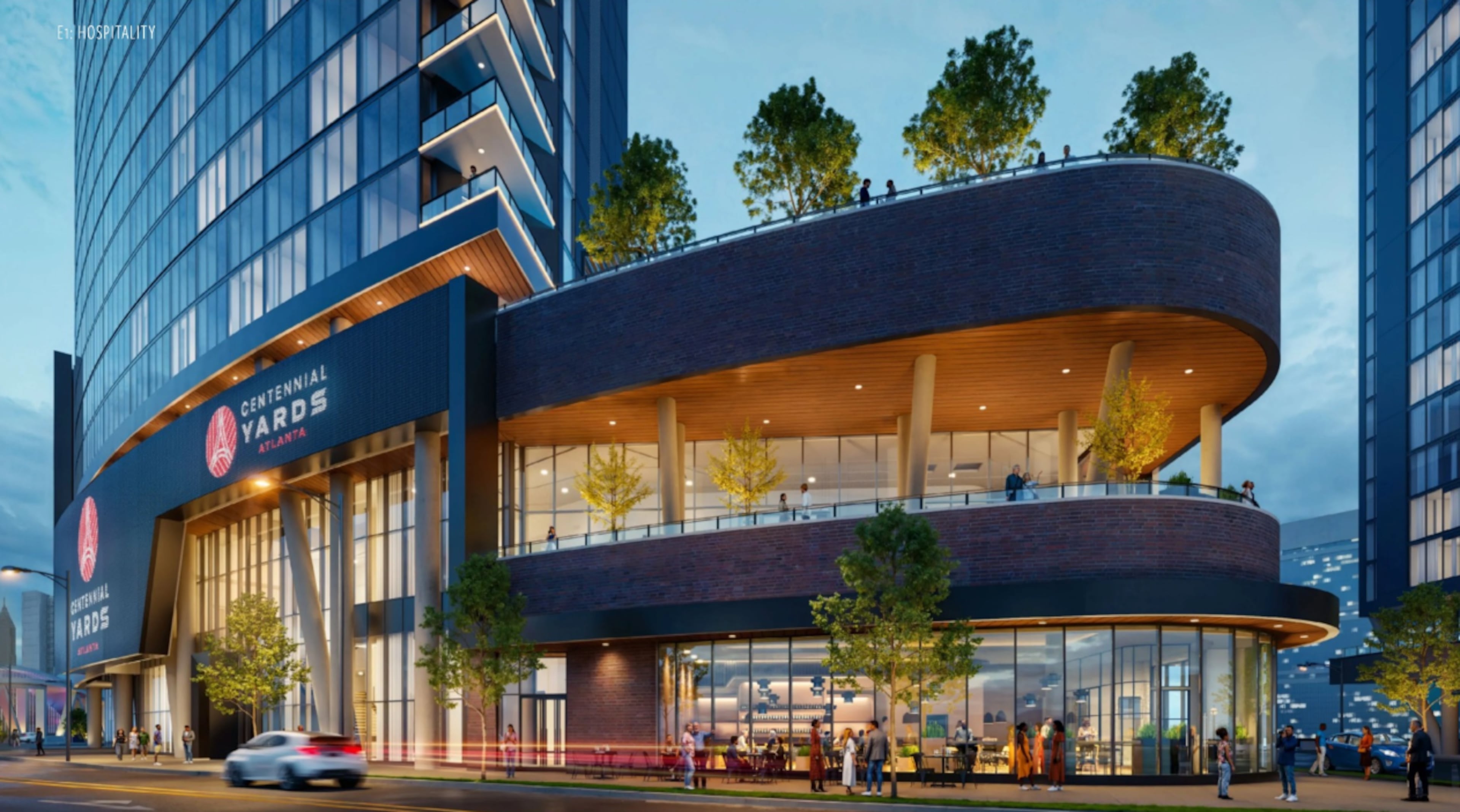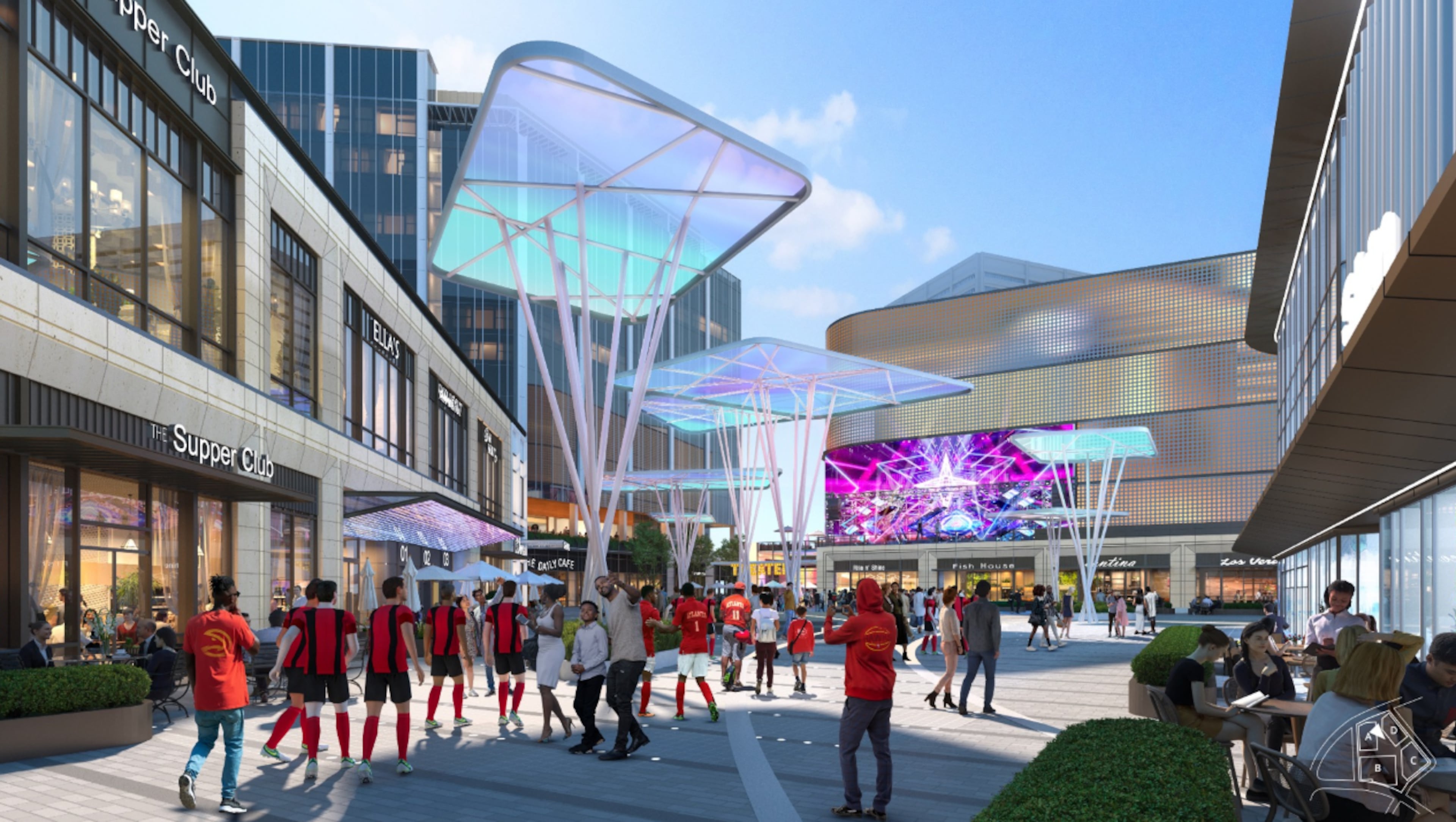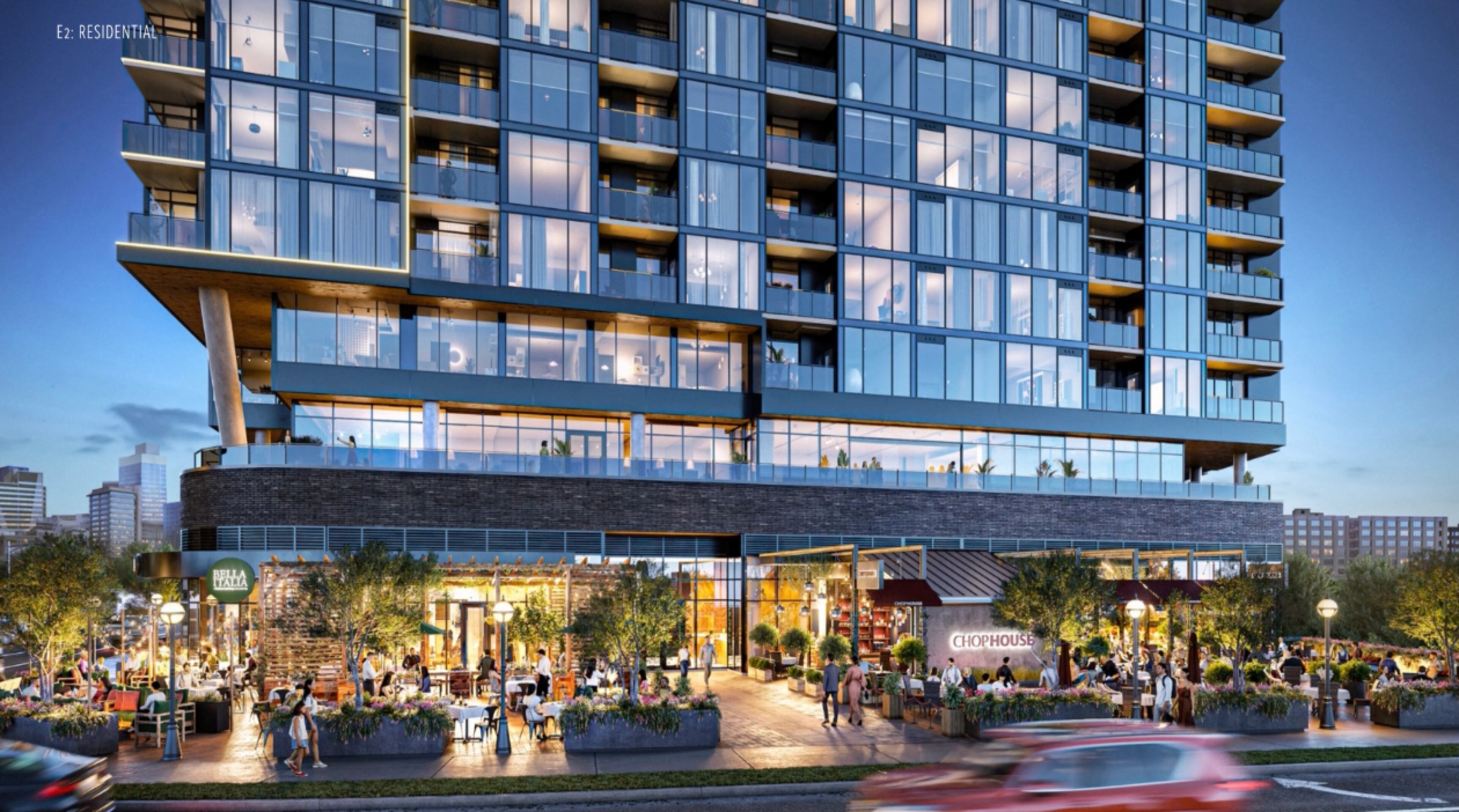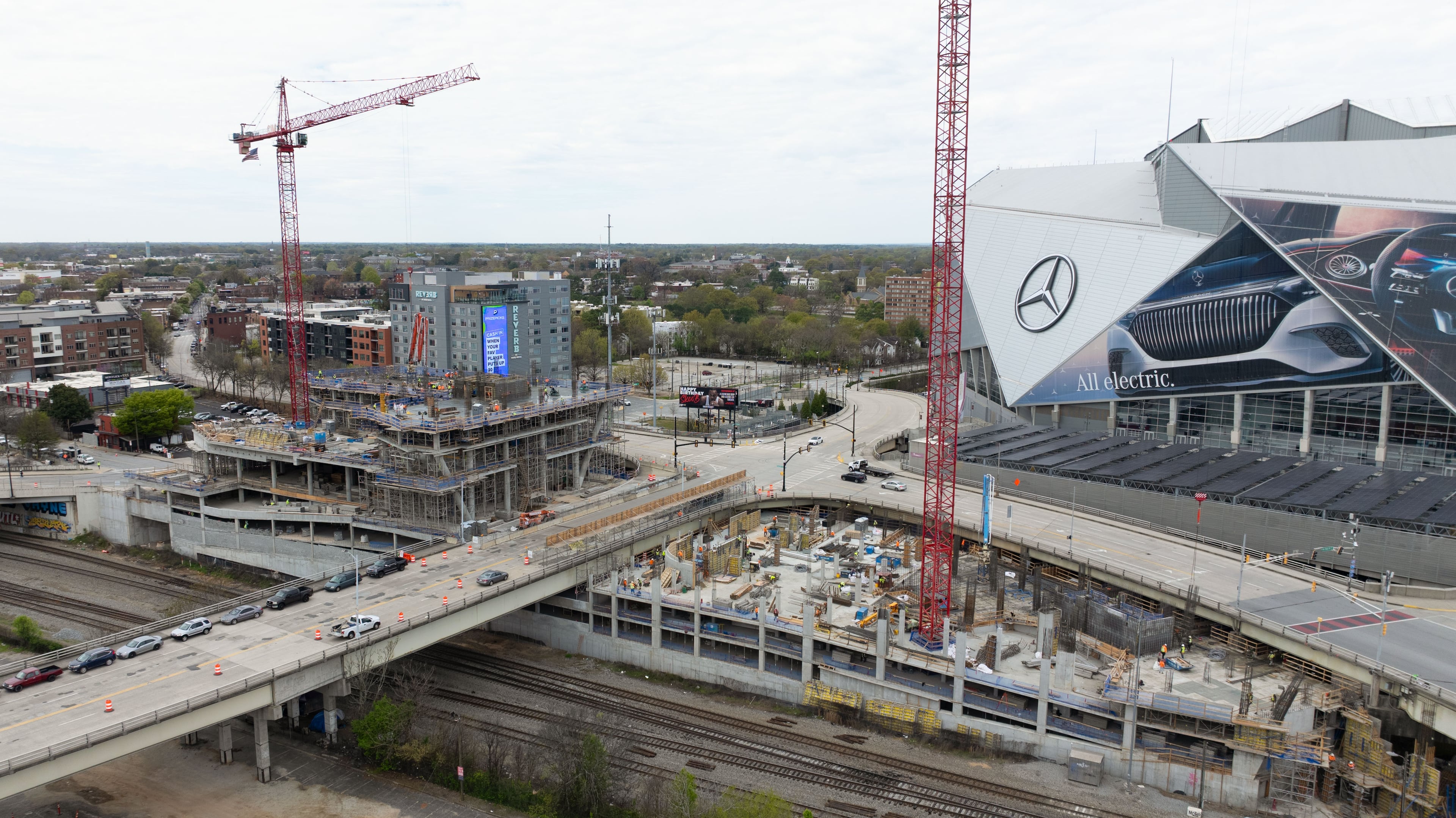Centennial Yards taps incentives to fund $557M bonds for next phase













Nearly six years ago, the city of Atlanta approved an incentive package of up to $1.9 billion to help redevelop downtown’s Gulch. On Thursday, a city agency approved an agreement to allow developer CIM Group to tap into some of those funds for the first time to launch construction of the next phase of Centennial Yards.
Invest Atlanta, the city’s economic development arm, approved the sale of roughly $557 million in bonds to support construction of the project’s central entertainment district near Mercedes-Benz Stadium. The bonds will be paid using future sales and property taxes created within the project under a complicated incentive agreement reached in late 2018.
Developer CIM Group initially proposed a $5 billion mini-city of office towers, apartments, hotels and retail space and a new street grid that could span some 12 million square feet. The company’s incentive deal with the city set a minimum of 4 million square feet of development.
The scope of the project, as outlined Thursday, has shifted. Developers outlined a project of nearly 6 million square feet, with residential and hotels being the largest future uses by square footage. Office towers were not included in the project presentation, a reflection of the difficult post-pandemic office sector — though the development team has said offices are not off the table and potential office tenants are being pursued.
Still, Centennial Yards remains one of the largest projects in Atlanta’s history and one that could transform a 50-acre tangle of rail lines and weedy parking decks that sit 40 feet below the viaducts between Five Points and State Farm Arena.
Ben Vera, vice president of CIM Group, said the bond issuances will allow the developer to tap into the capital markets to raise money to quickly begin construction of the project’s core 8-acre entertainment district, the heart of Centennial Yards that was first reported by The Atlanta Journal-Constitution. He said the the long-awaited project is building momentum, including two towers that are currently under construction.
“It is very helpful to be able to show two construction cranes to any investors,” Vera said. “It’s not pie in the sky anymore. It’s happening today, and with these bond proceeds, it’s going to continue to happen.”

Centennial Yards had to reach certain benchmarks before the developer would have access to bond issuances and public financing, according to the 2018 deal approved by the Atlanta City Council.

The developer has already constructed the Steele Bridge, replaced 1,300 linear square feet of century-old sewages lines and converted the old Southern Railway freight depot and office building into 162 apartments that are mostly leased. An attached retail area called the Canyon also opened with brewery Wild Leap and more forthcoming restaurant options.
Vera said the influx in capital works toward the developer’s goal of delivering the exterior of the entertainment district by 2026, when Atlanta will host eight World Cup matches. The entertainment hub will consist of four new buildings and a plaza for fan events. The district’s building interiors and most tenants likely won’t be ready to open until early 2027.
Invest Atlanta CEO Eloisa Klementich said the bond issuances do not commit any new funds or incentives beyond what was already approved by the city.
“No new funds,” she said. “There’s no more money coming from the general fund. No more money from the city and no increase in incentives. This is just the monetization.”
Klementich said changes to the project have not been significant enough to impact the city’s incentive agreement.
The current plan includes 2.8 million square feet of residential space, 1.7 million square feet of hospitality, 900,000 square feet of retail and 6,000 parking spaces. A 300,000-square-foot data center is also in the works.
The bonds will be sold to investors, which will be managed and underwritten by JPMorgan Chase, D.A. Davidson & Co. and Truist Securities. The developer will repay the bonds through future tax revenue streams generated within Centennial Yards.

“In a challenging market generally speaking, having a situation where bond funds are receiving cash from their investors creates an opportunity for us to come to market and be well received,” Vera said.
The bonds will be issued from two sources: an “Enterprise Zone” the city created under state law for the Gulch’s redevelopment and the Westside Tax Allocation District. The Enterprise Zone allows the developer to collect 5 cents of the 8.9-cent sales tax on retail sales to repay bond investors. The TAD uses future property taxes created by new development to repay the bonds.
The issuances approved Thursday do not exhaust the amount of taxpayer-backed bonds that the developer can access for the project, meaning the Centennial Yards team can make further requests during later development phases.
Brian McGowan, president of Centennial Yards Co., said the project would not be feasible without these government partnerships and financing tools.
“Today was a very good day for the continued revitalization of downtown,” said McGowan. “Without (these public-private partnerships), it would be impossible to transform these 50 vacant acres in the heart of our region — which currently generate little to no value for anyone — into a vibrant mixed use project that will create jobs, affordable housing, tax revenue and new opportunities for Atlantans.”
Future of Downtown
This story is part of an occasional series by the AJC to look at the future of Atlanta’s downtown. Several high-profile developments are poised to bring billions of dollars into the city’s core while it continues to grapple with the fallout of the COVID-19 pandemic and a challenging real estate financing market. Downtown will also soon garner international attention when the World Cup comes to Atlanta in 2026, providing a deadline for the city and downtown stakeholders to make promised improvements.



